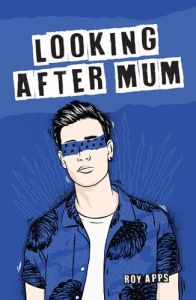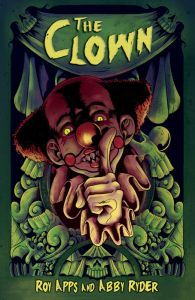Roy Apps
Award-winning children’s author Roy Apps began his career writing gags for stand-up comedians. Since then he has written over 80 children’s books, including How To Train Your Teacher, The Fang Gang comedy series and the narrative non-fiction sports’ series, Dream to Win. He has written two titles for Badger Learning — The Clown from their Big Top of Horrors Series, and more recently, Looking After Mum from their Two Sides series.
Roy's TV work includes children's series such as Chucklevision and Casper's Scare School. For ten years he was a lead writer on the ground-breaking children's drama series Byker Grove. He has received a special BAFTA Writers' Award for outstanding contributions to children's film and television.
Roy visits schools, libraries, bookshops and Arts Festivals all over the country to read from his books and to discover some of the amazing things that can be found in 'the shed in your head'.
Q&A with Roy Apps
What inspired you to write for reluctant readers?
Way back in time, I found myself visiting a Secondary school where a group of Year 7s were reading Biff and Chip. Something wrong here, I thought. So I was thrilled to be given a chance to write 'real' books for reluctant readers with themes, characters and stories that were appropriate and engaging for their age group.
What challenges do struggling readers face when they open a book?
Words, words, words... there are pages and pages of them.
It's sometimes easy to forget that the act of reading is a hugely complex cognitive process: deciphering and decoding strange squiggles on a page, putting these squiggles into groups of squiggles that can then be sounded out into words...
Design is crucial – white space, typeface, font size, how the illustrations work with the text.
What is your favourite type of character to create?
The Outsider. They watch the world carefully, they can be unpredictable, surprising, even disturbing, but they are true to themselves.
What features and methods do you use to ensure that your books have that High-Interest appeal that really engages young readers?
For any work of fiction or narrative non-fiction, the characters are paramount. Readers must be able to engage with the main characters and to care about what happens to them. That is how we, as readers, get 'hooked' by a story.
What difference do books like these make to children who are in need of literacy support?
These are real books, written by real authors. Not only that, children are given a chance to read a whole book.
Can you give us any teasers of what to expect in your upcoming Big Top of Horrors title?
So, you thought clowns were funny, did you? Oh dear...
What are the major themes of your work?
Discovery... amazing things about yourself, your family, friends, strangers, the countryside or buildings around you. Sometimes these things are heartening, reassuring – sometimes they're not. And... seeing that justice is done.
What controls do you place on the vocabulary you use and how important is this? Complex sentence structure can get in the way of good storytelling. As a writer who cut his teeth on radio drama and screenwriting, I have always tended to use a lot of dialogue in my books. Dialogue can give immediacy to the action and quickly establish character.
What is your favourite children's book?
As a child – Norman and Henry Bones: the Boy Detectives by A C Wilson. As an adult, Tom's Midnight Garden by Philippa Pearce.
Do you have any advice for aspiring writers/authors?
Look and listen out for stories. They're everywhere, not just in books, but in comics, on the telly, in the playground... work out what sort of stories grab you. That will tell you what sort of author you are.






